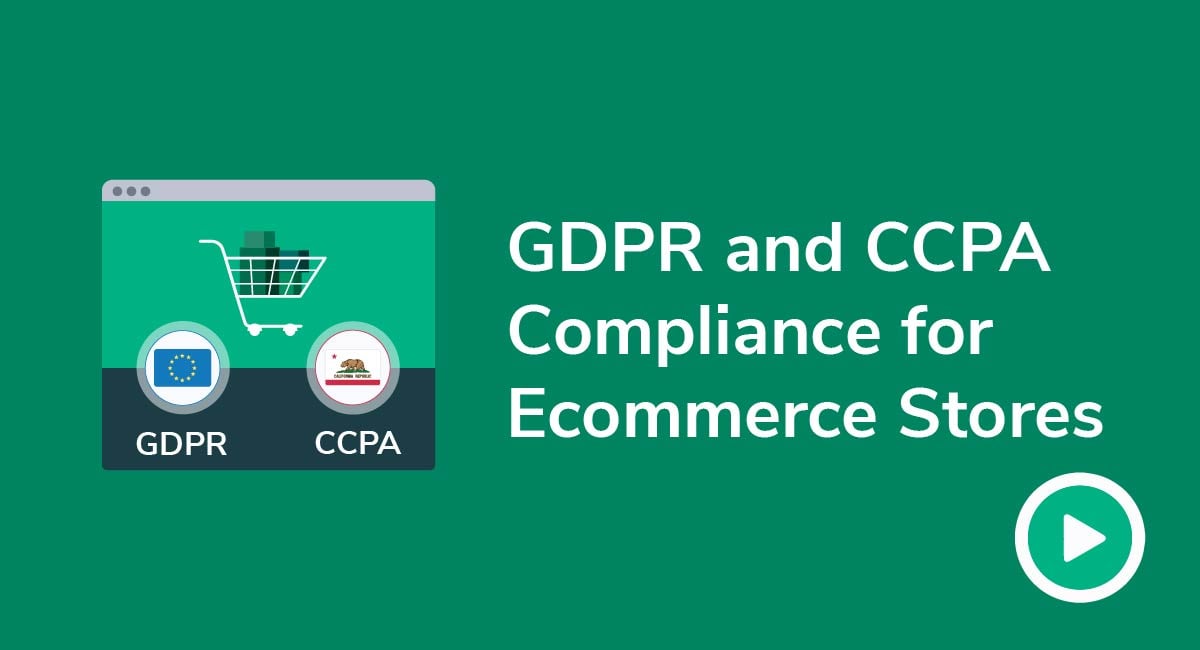Exploring Data Privacy Compliance in International Ecommerce
Delve into the intricate world of Data Privacy Compliance in International Ecommerce, where regulations and standards shape the global market. This captivating journey promises to unveil the complexities and strategies essential for businesses navigating the realm of data privacy.
In this discussion, we will explore the critical aspects of data privacy compliance in international ecommerce, shedding light on the challenges, strategies, and impact on consumer trust.
Overview of Data Privacy Compliance in International Ecommerce
Data privacy compliance is crucial in international ecommerce to protect the personal information of customers and maintain trust in online transactions. Failure to comply with data privacy regulations can result in hefty fines, legal consequences, and reputational damage for businesses operating in the global market.
Key Regulations and Standards
- The General Data Protection Regulation (GDPR): Enforced by the European Union, GDPR sets guidelines for the collection, processing, and storage of personal data of EU citizens.
- California Consumer Privacy Act (CCPA): Applies to businesses operating in California and regulates the collection and use of personal data of California residents.
- Payment Card Industry Data Security Standard (PCI DSS): Governs the secure handling of payment card information to prevent data breaches and fraud.
Impact of Non-Compliance
- Financial Penalties: Non-compliance with data privacy regulations can result in substantial fines, which can severely impact the financial health of a business.
- Legal Consequences: Failure to comply with data privacy laws can lead to lawsuits, legal actions, and damage to a company's reputation in the global market.
- Loss of Customer Trust: Data breaches and non-compliance can erode customer trust, leading to a loss of loyal customers and hindering business growth.
Challenges of Data Privacy Compliance in International Ecommerce

Complying with data privacy laws in the international ecommerce landscape presents a myriad of challenges for businesses.
Complexities of Complying with Multiple International Data Privacy Laws
One of the major challenges faced by ecommerce businesses is navigating the complexities of complying with multiple international data privacy laws. Each country has its own set of regulations and requirements regarding data protection, making it difficult for businesses to ensure compliance across all jurisdictions.
Common Challenges Faced by Ecommerce Businesses
- Managing cross-border data transfers while maintaining compliance with varying regulations.
- Ensuring proper consent mechanisms for data collection and processing.
- Implementing robust data security measures to prevent breaches and protect customer information.
- Handling data subject access requests and managing data breaches effectively.
Differences in Data Privacy Regulations Across Various Countries
The differences in data privacy regulations across various countries pose a significant challenge for ecommerce businesses. From the stringent requirements of the GDPR in Europe to the more relaxed approach in some Asian countries, navigating these diverse regulatory frameworks requires a deep understanding of each jurisdiction's laws and practices.
Strategies for Ensuring Data Privacy Compliance in International Ecommerce
To maintain data privacy compliance in international ecommerce, businesses must implement robust strategies for collecting, storing, and processing customer data in accordance with international laws and regulations. Designing a comprehensive data privacy compliance framework and conducting regular audits are essential steps to ensure ongoing compliance.
Best Practices for Collecting, Storing, and Processing Customer Data
- Obtain explicit consent from customers before collecting any personal data.
- Implement encryption and data anonymization techniques to secure customer data.
- Regularly update security measures to protect against data breaches.
- Limit access to customer data to authorized personnel only.
- Adhere to data retention policies and securely dispose of data that is no longer needed.
Data Privacy Compliance Framework for International Ecommerce
Develop a comprehensive policy that Artikels how customer data is collected, stored, and processed, ensuring compliance with international data protection laws such as GDPR, CCPA, and others.
Assign a Data Protection Officer responsible for overseeing data privacy compliance and conducting regular assessments.
Provide training to employees on data privacy best practices and compliance requirements.
Implement data breach response protocols to ensure quick and effective responses in case of a security incident.
Tips for Conducting Regular Audits
- Schedule regular data privacy audits to assess compliance with international regulations.
- Review data processing activities to ensure they align with the established compliance framework.
- Conduct internal and external audits to identify any potential gaps in data privacy practices.
- Address any non-compliance issues promptly and make necessary adjustments to policies and procedures.
Impact of Data Privacy Compliance on Consumer Trust
Maintaining data privacy compliance is crucial for enhancing consumer trust in international ecommerce. When customers know that their personal information is being handled securely and in accordance with regulations, they are more likely to feel confident in making purchases online.
Role of Transparent Data Practices
Transparent data practices play a significant role in building customer confidence. By clearly communicating how data is collected, used, and protected, companies can establish trust with their customers. Transparency helps customers understand the value of sharing their information and feel reassured that their privacy is being respected.
- Providing clear and easily accessible privacy policies on websites
- Offering options for customers to control their data preferences
- Keeping customers informed about any data breaches or security incidents
Examples of Companies Leveraging Data Privacy Compliance
Several companies have successfully leveraged data privacy compliance to strengthen customer relationships. For instance, Apple has been known for its strong commitment to user privacy, implementing encryption and other measures to protect customer data. This approach has not only enhanced consumer trust but also set Apple apart as a trusted brand in the tech industry.Another example is e-commerce giant Amazon, which has invested heavily in data security and privacy compliance.
By prioritizing customer privacy and data protection, Amazon has built a loyal customer base that trusts the platform with their personal information.
Summary

As we conclude our exploration of Data Privacy Compliance in International Ecommerce, we reflect on the significance of maintaining data privacy to foster consumer trust and enhance business relationships. This insightful discussion serves as a guide for businesses seeking to navigate the complex landscape of international data privacy regulations.
Top FAQs
What are the key regulations governing data privacy in international ecommerce?
The key regulations include GDPR, CCPA, and PDPA, among others, which aim to protect consumer data and privacy rights.
How can businesses ensure ongoing compliance with data privacy regulations?
Businesses can ensure ongoing compliance through regular audits, implementing data privacy frameworks, and following best practices for data collection and processing.
Why is consumer trust crucial in international ecommerce?
Consumer trust is crucial as it fosters loyalty, enhances brand reputation, and drives repeat business in the competitive global market.